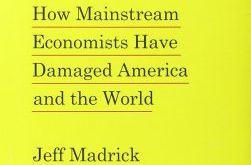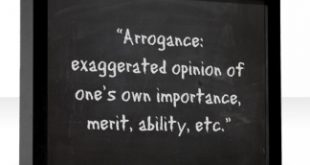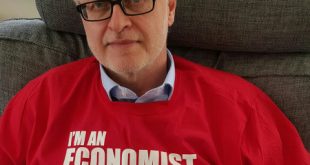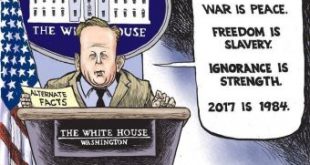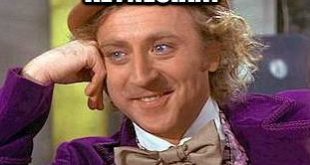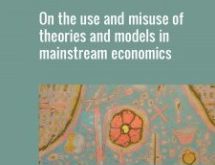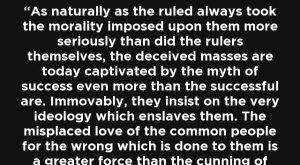The government budget deficits obsession The obsession with government budget deficits since the crisis of 2008 and the subsequent recession illustrates the damage done by mistaken economic ideas. In the rich West, tens of millions of people lost jobs that could have been saved … The media focused on the politics of the budget debate, but economic ideas had a central role in the outcome. Believers in Say’s law predominated … The most prominent research was...
Read More »Good Bye Lenin
[embedded content] div{float:left;margin-right:10px;} div.wpmrec2x div.u > div:nth-child(3n){margin-right:0px;} ]]> Advertisements
Read More »Methodological arrogance
So what do I mean by methodological arrogance? I mean an attitude that invokes micro-foundations as a methodological principle — philosophical reductionism in Popper’s terminology — while dismissing non-microfounded macromodels as unscientific. To be sure, the progress of science may enable us to reformulate (and perhaps improve) explanations of certain higher-level phenomena by expressing those relationships in terms of lower-level concepts. That is what Popper calls...
Read More »Time-saving
div{float:left;margin-right:10px;} div.wpmrec2x div.u > div:nth-child(3n){margin-right:0px;} ]]> Advertisements
Read More »The philosophy of lying
The philosophy of lying Something repellent clings to the lie, and though the consciousness of this was indeed beaten into one with the old whip, this simultaneously said something about the master of the dungeon. The mistake lies in all too much honesty. Whoever lies, is ashamed, because in every lie they must experience what is degrading in the existing state of the world … Such shame saps the energy of the lies of those who are more subtly organized....
Read More »Windswept
[embedded content] div{float:left;margin-right:10px;} div.wpmrec2x div.u > div:nth-child(3n){margin-right:0px;} ]]> Advertisements
Read More »Galbraith’s History of Economic Thought
Galbraith’s History of Economic Thought [embedded content] div{float:left;margin-right:10px;} div.wpmrec2x div.u > div:nth-child(3n){margin-right:0px;} ]]> Advertisements
Read More »The History of ‘New Keynesianism’
Stage 0. Late 1960’s. The Phelps volume, and Milton Friedman’s paper (pdf), both thinking about the microfoundations of the Phillips Curve, the difference between actual and expected inflation, and the role of monetary policy. This was the ancestral homeland of both New Keynesian and New Classical macroeconomics, which could not be distinguished at this stage … Stage 1. Mid 1970’s. Now we see the difference. A distinct New Keynesian approach emerges. New Keynesians assume that...
Read More »What is wrong with economic theory
What is wrong with economic theory “A wonderful set of clearly written and highly informative essays by a scholar who is knowledgeable, critical and sharp enough to see how things really are in the discipline, and honest and brave enough to say how things are. A must read especially for those truly concerned and/or puzzled about the state of modern economics.” Tony Lawson Table of Contents Introduction What is (wrong with) economic theory? Capturing...
Read More »The myth of success
The myth of success div{float:left;margin-right:10px;} div.wpmrec2x div.u > div:nth-child(3n){margin-right:0px;} ]]> Advertisements
Read More » Lars P. Syll
Lars P. Syll

